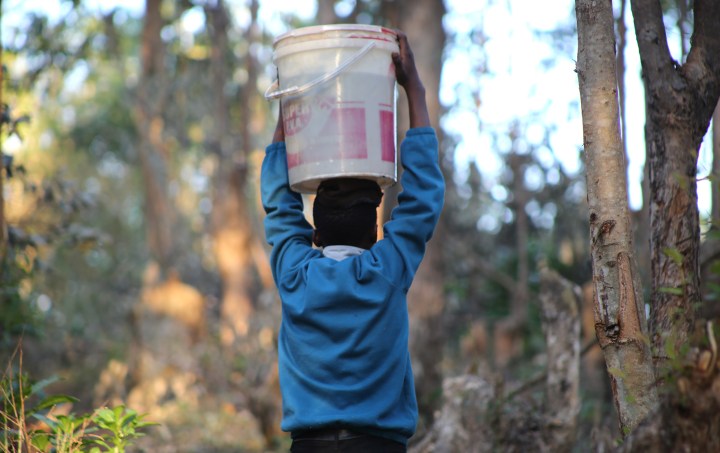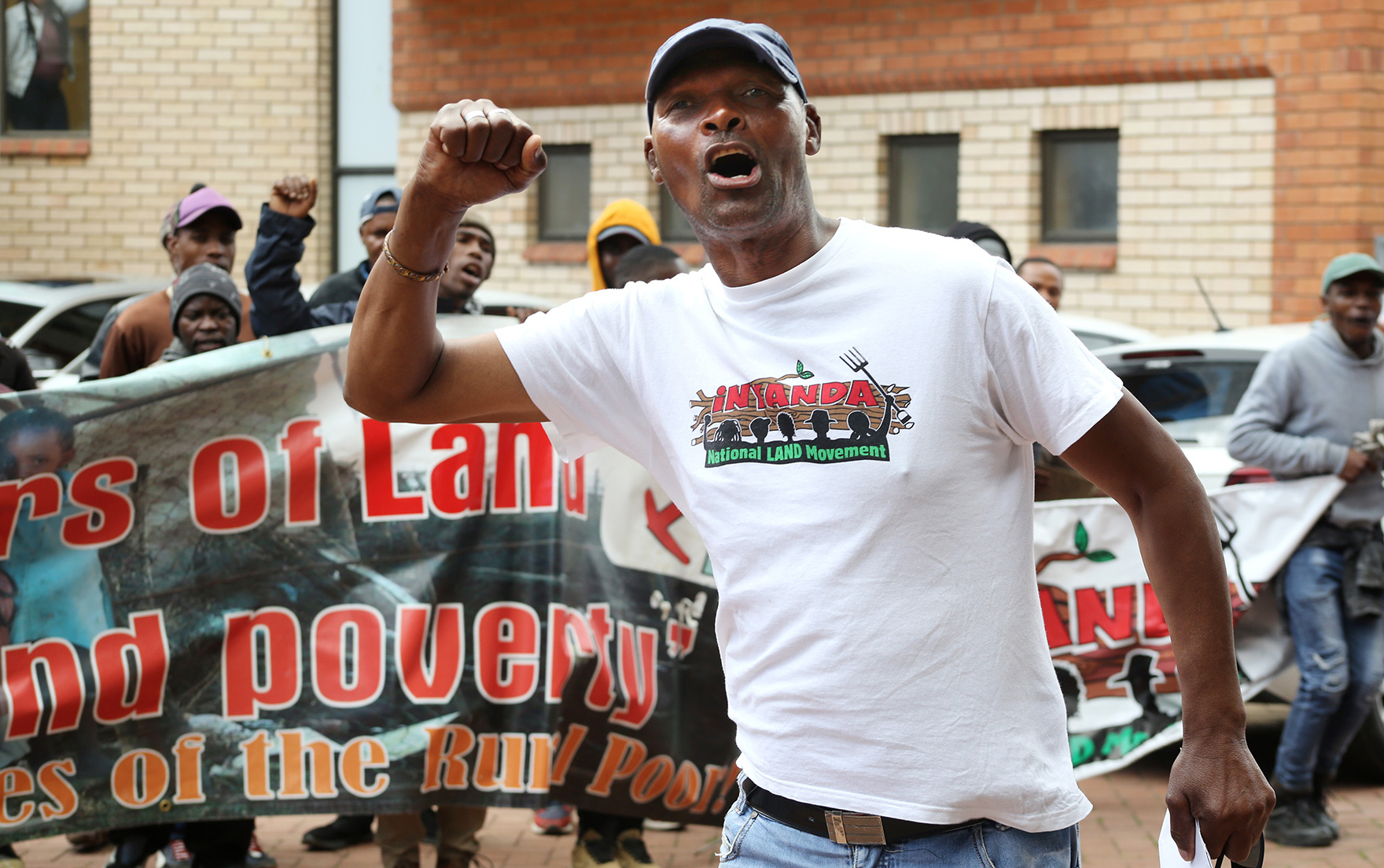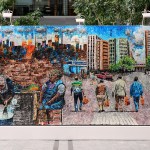WATER CRISIS
R20bn or 20 years: What a single rural Eastern Cape municipality needs to provide water to residents

Protesters from communities across the Eastern Cape have promised ‘harsher action’ if their objections about the lack of water services, poor quality of water and high water bills are ignored. But the chances of the province supplying water to everybody in the near future are almost zero, with one municipality estimating that it would take R20-billion or 20 years to eradicate its backlogs.
Residents from several local municipalities in the Eastern Cape recently marched to the offices of the Department of Cooperative Governance and Traditional Affairs to protest against the water crisis in their villages.
The campaign was led by the Inyanda National Land Movement. The group’s chairperson, Monwabisi Jende, said Eastern Cape residents have had enough of sharing their unclean water with animals.
“We are here to air our concerns around the issue of water and old infrastructure in particular,” he said.
“It’s a long time for our areas to be without water. We haven’t had water since 2018. That is why we are here – for our voices to be heard,” he said.
“The water crisis is happening across the province, but it is worse under the Raymond Mhlaba Municipality. There are villages far away from Qonce (King William’s Town) and they are living without water reticulation. You can’t deprive a human being of water for so many years. It is like killing them. Water is an essential service,” said Jende.

Inyanda National Land Movement chairperson Monwabisi Jende dancing during a water crisis campaign march outside the Department of Cooperative Governance and Traditional Affairs offices in Bisho, Eastern Cape. (Photo: Hoseya Jubase)
This was the second protest organised by the Inyanda National Land Movement, but they have yet to receive a response from government.
Pheello Oliphant, spokesperson for Cooperative Governance and Traditional Affairs MEC Zolile Williams, did not respond to Daily Maverick’s questions.
Jende said communities see that dams are being built – but never filled.
“They are full of mud and we have to compete with animals for the little water that there is.”
He promised “harsher steps” from next week if they do not receive a response from government.
“Enough is enough. We need water. Come next year, it’s election time. We will take our vote to a different party. We are really tired of empty promises,” he added.
“Our communities are continuously encountering inequalities in municipal services, especially with regard to the provision of water services. This is related to water cuts without any prior notification, high water bills and the consumption of unclean water,” he added.
Angry residents also claimed that local municipalities at Ngqushwa, Makana, Mnquma, Sakhisizwe, Nyandeni and Sundays River are among those that have failed their residents and visitors by not providing clean tap water.
Census figures show the percentage of households that have reticulated water in these local municipalities:
Ngqushwa – 29.1%
Makana – 63%
Raymond Mhlaba – 43.7%
Mnquma – 33.3%
Sakhisizwe – 21.3%
Nyandeni – 23.7%
Sunday’s River – 55.3%
Jende said that homes with piped water in the Buffalo City Metro are also receiving exorbitant water bills.
He said residents are checking the Blue Drop reports to determine the quality of water delivered to them.
Read more in Daily Maverick: Hawks arrest OR Tambo municipal officials over millions paid for unfinished and unbuilt dams
Monwabisi Nzuzo (56) lives in the Raymond Mhlaba Municipality. He said they go without water for up to six months at a time.
“Nobody cares about the rural areas. They treat us like animals,” Nzuzo added.
One of the elderly women who joined the protest march, Nomaxabiso Dayile, said they lived in a toxic environment.
“We are living in a very bad situation in Xhungwane locality. We are only surviving with water from dams that we share with pigs and horses. Our roads are also really bad. We depend on the rain to get clean water. Those municipal water tankers only come to our villages when there is a funeral,” she said.
“Taps are here but there is no water in them. Last year we were complaining about this, but there has been no change,” Dayile said.
Public Protector report
In a report highlighting the crippling lack of basic services in the Eastern Cape, Public Protector investigators confirmed that several rural communities in the province did not have access to clean water.
The report was handed to Premier Oscar Mabuyane last week.
It highlighted a lack of basic essential services by the departments of health, education, transport and social development, and a critical infrastructure backlog in certain villages.
Read more in Daily Maverick: South Africa’s population has increased to 62 million – a challenge for government to provide basic services
A section of the report deals with the Alfred Nzo District Municipality. According to the 2022 Census, between 16 and 28% of residents, depending on the local municipality, have access to reticulated water in this district.
“Areas of concern relate to a lack of access to clean and reliable water supply, which includes villages such as Ndakeni in Ntabankulu and Mpetshwa location in Mbizana.
“Residents in these areas were witnessed by the investigation team during site inspection fetching unhygienic water from the nearby rivers/streams for domestic use, thereby being exposed to waterborne diseases and other associated health hazards.
“Furthermore, it was noted in some instances that taps were installed; however, there is no running water and the taps are dry in areas like Mpetshwa and Ramohlakoana locations,” the report continues.
While the report highlighted a lack of water provision from municipalities across the board, the worst problems were found in the Alfred Nzo district.
The Alfred Nzo District Municipality has told investigators from the Public Protector’s Office that they would need R20-billion or another 20 years to eradicate water infrastructure backlogs.
According to the report, investigators found that the lack of access to water “poses a threat to communities within the district”.
The report further found that in the Amathole District Municipality – while efforts are being made to address the issue – there is still the inadequate provision of water services and related infrastructure, specifically in rural areas where residents rely on rivers and streams as a source of water for domestic consumption, and have to share this with animals.
The report found that municipal efforts to provide water are also being hampered by vandalism, illegal connections, load shedding, climate change, financial constraints, historical backlogs and old infrastructure. DM




















One wonders how they accessed water in these areas before Jan van Riebeeck arrived.
You get, what you vote for.
R20,000,000,000 for a water system for how many people?
If they have 800,000 people and each person must get 100 liters per day, then before one penny spent on staff, water treatment or maintenance, ie JUST repaying the 20 billion with interest comes to R76/kl or four times the price of potable water in my council.
Does anybody do a reality check on the nonsense that advisors and consultants whisper in their ears?
For such a large area, a network of boreholes and treatment plants would be a fraction of the cost claimed.
Work on R250,000 per borehole plus its treatment system on borehole that can deliver 320 kl a day or enough for 3000 people. So under R100m plus must then add reticulation costs but anyway a fraction of R20,000,000,000